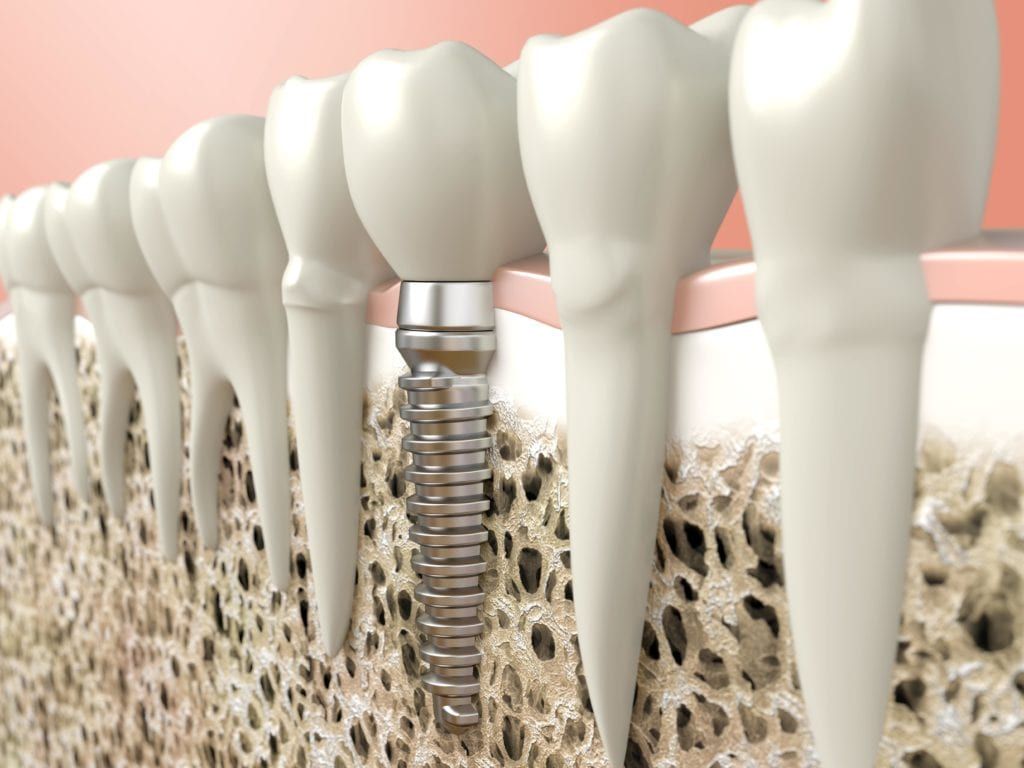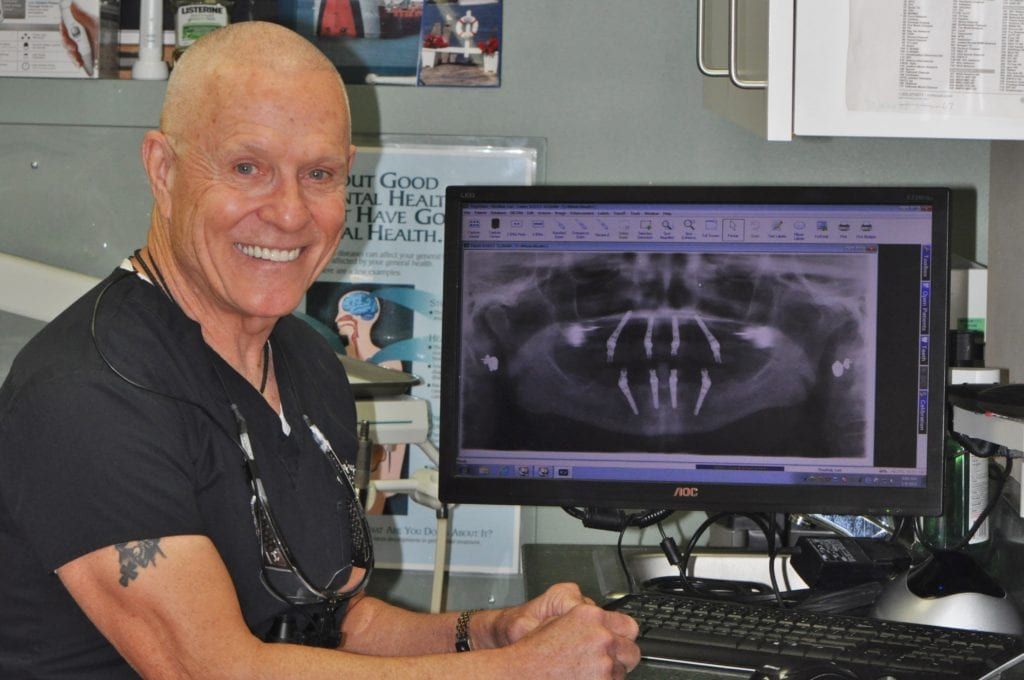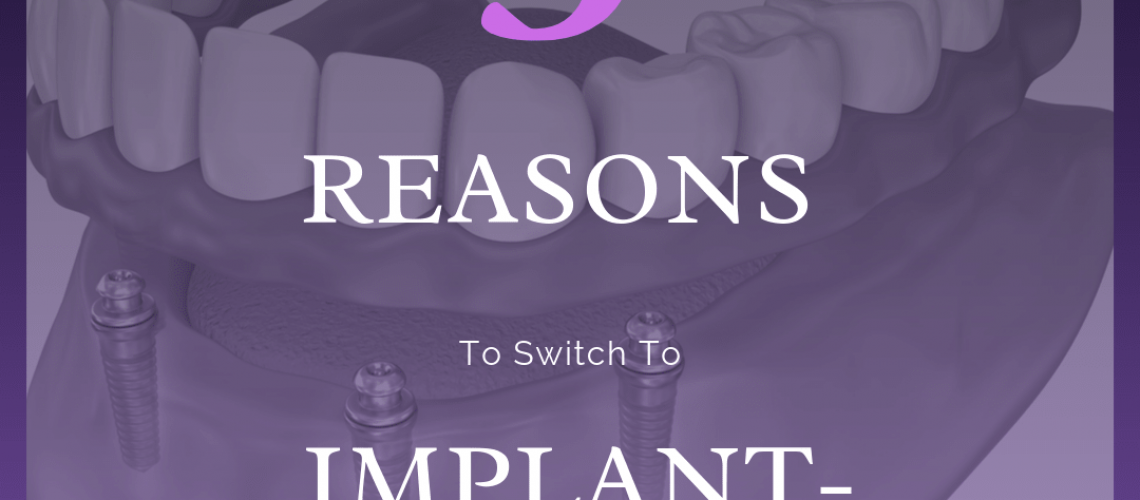Dentures have been part of dentistry since as early as the 7th century BC. At that time, the Estruscans used human or animal teeth attached to one another with gold bands. In the years following, dentures went through many changes. During the 20th century, the dentures we know today were developed using acrylic resin.
Recently, however, dentures have begun to evolve further. With the introduction of dental implants, came the development of the implant-supported denture. Like traditional dentures, implant-supported dentures can restore an entire arch of teeth. Unlike traditional dentures, however, implant-supported dentures are permanently fixed into the mouth.
If you currently have or are a candidate for traditional dentures, your dentist may have mentioned making the switch to implant-supported dentures. Here are five reasons why you should consider switching to implant-supported dentures:

No More Adhesives
Implant-supported dentures use a series of 4-6 dental implants to secure the denture in the mouth. This means that you will never, ever have to use denture adhesive again. This is a huge perk considering many denture adhesives have a horrid flavor and are not always the most effective at holding the denture in place.

Improved Speech
One of the main drawbacks of traditional dentures are the simple fact that they slip (due to ineffective adhesives). Without realizing it, many people alter the way they speak in an attempt to prevent the denture from slipping or even falling out while they talk. Traditional dentures can even cause problems with enunciation and they have been known to cause lisps. Since implant-supported dentures are firmly placed in the mouth, they will not slip or fall out. Therefore, you can speak as you would with your natural teeth.


Jawbone Preservation
This is one of the biggest dental benefits of implant-supported dentures. Did you know that after you lose teeth, your jawbone is no longer stimulated by the forces of biting and chewing? As a result, your body will begin to absorb the bone tissue for use elsewhere in the body. This eventually causes your facial structure to change, meaning that your traditional dentures will no longer fit correctly. However, implant-supported dentures stimulate the jawbone with the artificial tooth roots of the implant screws. This preserves the bone and prevents changes in facial structure. This also means that you will never have to replace your implant-supported denture because it no longer fits.

Natural & Aesthetic Appearance
Implant-supported dentures have a more natural and aesthetic appearance when compared to traditional dentures. For starters, implant-supported dentures cannot shift or look crooked like traditional dentures. Additionally, because implant-supported dentures preserve the jawbone, they will keep your face looking naturally younger.


Eat What You Want
Last, but certainly not least, implant-supported dentures allow you to eat whatever you want (within reason). The dental implants provide a level of strength to implant-supported dentures that traditional dentures simply don’t have. Implant-supported dentures have been found to almost completely restore natural chewing and biting functions, meaning you can go back to enjoying your favorite foods.
Overall, implant-supported dentures are the dentures of the future. They offer patients more benefits than traditional dentures, including stability without adhesives, improved speech, preservation of the jawbone, a natural & aesthetic appearance, and restored chewing function. With so many benefits associated with implant-supported dentures, are you ready to make the switch? For more information, see “Full Arch Implant Supported Teeth in a Day”.

Dr. Gregory J. Young is a Diplomate and board certified by the American Board of Oral Implantology/Implant Dentistry. He is also an Associate Fellow of the American Academy of Implant Dentistry. Additionally, he provides education, training and mentoring to his colleagues in all phases of implant dentistry. He has over 37 years of experience and dedicates his practice solely to implant dentistry and training.




